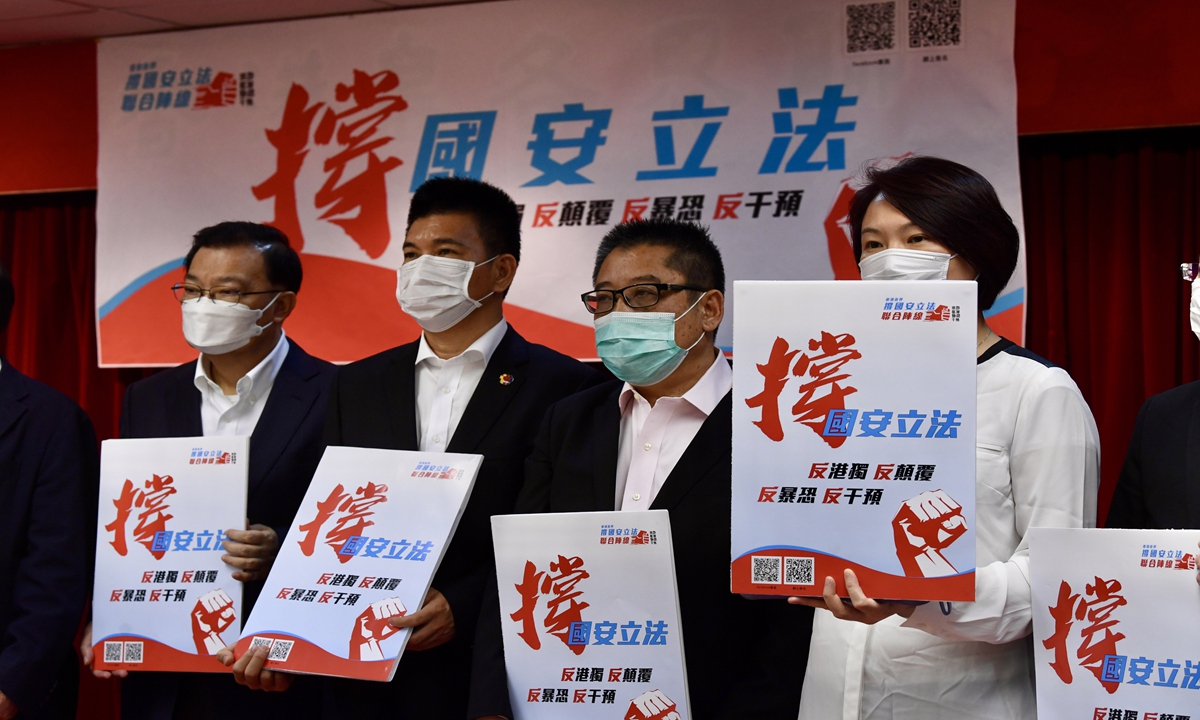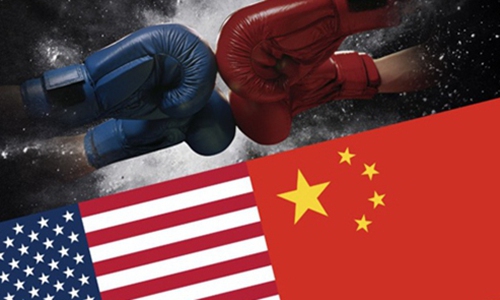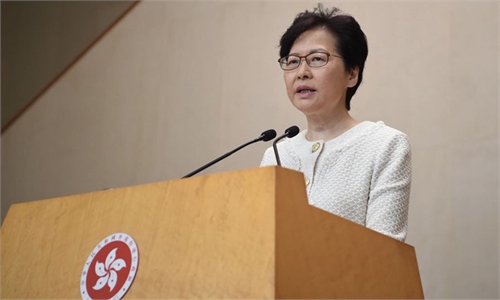HONG KONG / MORE 2
West's offers to lure HKers help city drain 'bad blood'
Traitors’ fleeing to help HK regain stability, energy: experts

The United Front Supporting National Security Legislation holds a press conference on Monday, saying that 2.92 million Hong Kong citizens have signed a petition in support of the proposed national security legislation. Photo: cnsphoto
To further meddle in Hong Kong's affairs, US and UK politicians, including British Prime Minister Boris Johnson, have jumped out to try to lure Hong Kong residents with relaxed immigration policies, a move which Chinese observers predicted will do nothing to affect the implementation of the national security law in Hong Kong but actually helps the Chinese city drain out national traitors, who are "bad blood" poisoning Hong Kong.
With the introduction of the national security law in Hong Kong, the city will embrace greater stability and vitality toward long term prosperity and the relaxed immigration policies may not be as attractive to a majority of Hong Kong people as expected, observers believed.
The UK is prepared to change its immigration rules if China imposes a national security law on Hong Kong, Johnson said on Wednesday in an op-ed for the South China Morning Post. The British prime minister added that China's decision to impose a national security law on Hong Kong will "curtail its freedoms and dramatically erode its autonomy."
His response came after US Secretary of State Mike Pompeo said on Monday that the US is considering welcoming people from Hong Kong in response to China's push for a national security legislation.
Earlier Tuesday, Canadian Prime Minister Justin Trudeau also expressed concern for 300,000 Canadian citizens living in Hong Kong but stopped short of committing to accept "asylum seekers."
Trudeau said Canada welcomes people from around the world who flee "persecution and violence," and hinted Ottawa is looking at more.
The attraction to relocate or migrate today in the UK is not like when there was so much political uncertainty in the 1980s when the Sino-British Joint Declaration was signed. In those days there was economic and political uncertainty in the Chinese mainland, Lawrence Ma, a Hong Kong barrister and chairman of the Hong Kong Legal Exchange Foundation, told the Global Times on Wednesday.
China's economy has rapidly picked up together with consolidation of internal political foundation and successful and effective anti-corruption campaigns, while the Western powers are declining in their influence, Ma said. "Hong Kong people have confidence in the Chinese system."
He also said that no one in Hong Kong wants to become a second class citizen in those countries, such as the UK or the US.
Fan Peng, a research fellow at the Chinese Academy of Social Sciences' Institute of Political Sciences told the Global Times that the UK and the US intended to embarrass China by announcing such policies. "But if China revoked the citizenship to those Hong Kong people who immigrate to the US and the UK under such policies, few would respond to those Western countries' calls," Fan noted.
The US and UK's announcement is only bluffing to undermine the outside world's confidence in Hong Kong, create the impression that the city is in chaos, and exert pressure on the central government to withdraw the national security law, Li Haidong, a professor at the Institute of International Relations of the China Foreign Affairs University, told the Global Times.
Lau Siu-kai, a vice-president of the Chinese Association of Hong Kong and Macao Studies, told the Global Times previously that the UK won't have any real changes for Hong Kong rioters as immigration is one of the factors that propelled the UK's divorce from the EU. "Once it agreed to take Hong Kong BN(O) holders, the UK government will shoulder huge pressure from its society."
Leung Chun-ying, the former top official of the Hong Kong Special Administrative Region (HKSAR) government, wrote on Facebook on Wednesday that Johnson's article in the South China Morning Post shows "parochial arrogance," and is again a play of the BN(O) visa card. "The UK has no choice but follow the US, but it has no influence at all," Leung said.
The central government has already expected Western countries' reaction when they deliberated the move for the national security legislature in Hong Kong, said Fan.
"A small group of people, such as prominent supporters of riots, including Jimmy Lai (a key anti-government figure in Hong Kong and founder of Apple Daily), may be glad as they fear they may be the first batch to be brought under legal punishment once the law is implemented. So they regard the UK and US policies as a retreat."
Hong Kong used to witness an economic take-off, which was attributed to its stable financial system, clean political atmosphere and sufficient social guarantee measures.
But those were marred by social unrest since the illegal "Occupy Central" movement in 2014.
"So it is not a bad thing if people like Jimmy Lai leave Hong Kong," said Fan, comparing those rioters, traitors as "bad blood" of Hong Kong. Once they drain out, Hong Kong would get the chance to be stable and energetic, which would lead to long-term prosperity.




